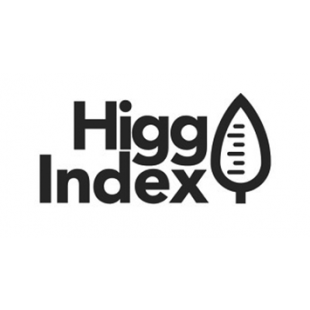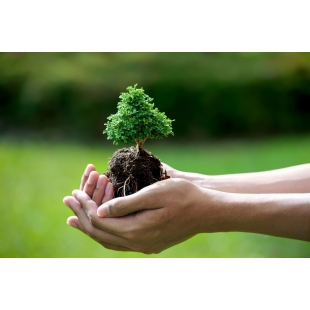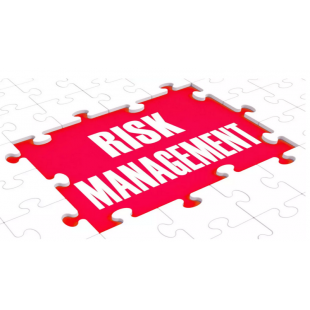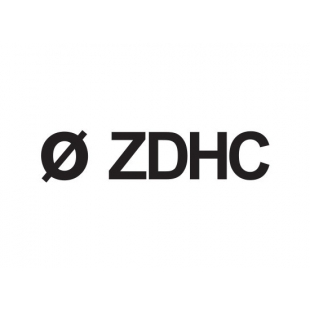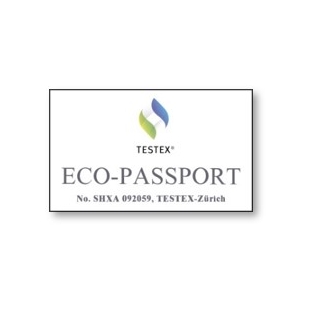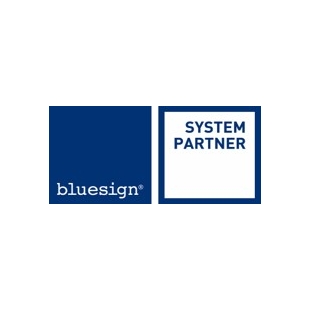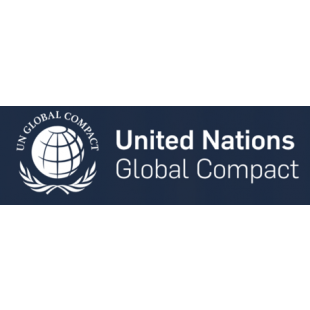All SUSTAINABLE
-
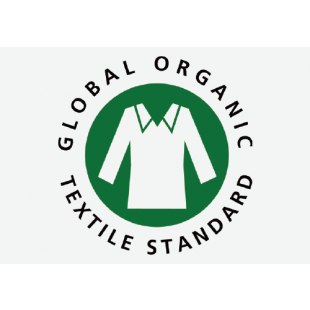
GOTS
The starting point for the development of the Global Organic Textile Standard (GOTS) was the International Organic Cotton Conference held in Dusseldorf, Germany in 2002. Global organic cotton producers, textile processors, consumers, standardization organizations, and verification agencies gathered together to discuss how to solve various certifications in the organic textile market, and decided to establish the International Working Group on Global Organic Textile Standards (International Working Group on Global Organic Textile Standard, IWG) to construct a unified standard applicable globally. German International Association of Natural Textile (IVN), American Organic Trade Association (OTA), British Soil Association (Soil Association, SA), Japan Organic Cotton Association (Japan Organic Cotton Association, JOCA), etc. The four international standards organizations come together to discuss GOTS. In 2005, GOTS version 1.0 was released. It began to be used in 2006, and relevant standards and guidelines were announced in 2008. Its standard content includes two major parts: product environmental protection and corporate social responsibility, and for organic textiles, it sets out regulations from raw material production to clothing labeling methods, and is aimed at the textile supply chain. Perform independent and complete verification.
The core consideration of GOTS is to ensure that organic textiles are in compliance with the regulations from harvesting, raw materials, processing and final product packaging, so as to bring reliable products to final consumers. Textile and clothing products that contain at least 95% of certified organic fibers will be awarded the "organic" (organic) grade label, and those with only 70% will be awarded the "made with organic" (made with organic) grade label. To achieve consistency and transparency in organic textile standards by requiring textile manufacturers to regulate the production of organic textiles and apparel with globally recognized standards. GOTS covers all processes of natural fiber planting, processing, packaging, labelling, import, export, distribution, etc., and the final products include but not limited to fibers, yarns, fiber products, and clothing accessories.
According to the latest GOTS version 5.0, the content of the specification includes three major items: guidelines, social guidelines, and quality assurance system. The guidelines are further divided into "production requirements for organic fibers", "requirements for the composition of fiber raw materials", and "products used in each processing stage. General Requirements for Chemical Inputs" and "Specific Requirements and Test Parameters".
On-site inspection and verification of processing plants, manufacturers, and traders by an independent professional verification organization is the basis of the GOTS supervision system, and based on this, GOTS-labeled textiles with credibility are provided.
Certification application
Textile processing plants, manufacturers, and traders can apply for the GOTS mark. Applicants should first contact a GOTS-approved certification body. The certification body can provide an assessment of the operation process and timeline from application to completion of certification. In addition, the verification agency will also estimate the verification cost based on the location, scale, operation status and other relevant factors of the case. In principle, all GOTS-approved certification bodies are allowed to provide global inspection and certification services, and applicants can choose any certification body to apply. Some operators provide services through regional offices or cooperate with local operators, but some operators coordinate and integrate global services through the company headquarters. However, GOTS has restrictions on the scope of inspections that each certification body can perform. The scope of textile supply chain inspections that a certification body can perform can be divided into the following categories. The contact information of relevant certification bodies, regional representatives, and information on the scope of inspection are listed. On the GOTS website:
1. Scope 1: For textile machinery processing, production procedures and products.
2. Scope 2: For wet processing, finishing procedures and their products.
3. Scope 3: For trading activities and products.
BSI Group (Jiangsu Dawan) have been completed the GOTS application in 2022. When manufacturers seek GOTS-compliant dyes and auxiliaries, we have more than 300 types of textile dyes, pigments, and auxiliaries to choose from.
For more information on GOTS, visit https://global-standard.org/.GOTSmore -
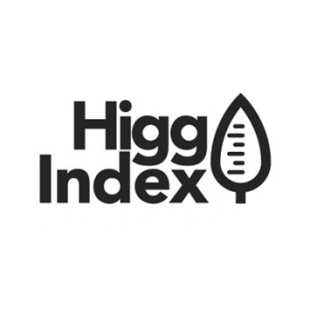
Higg Index
The Higg Index is an innovative self-assessment tool developed by the Sustainable Apparel Coalition (SAC) to help apparel, footwear, retail, and brand owners of all sizes utilize product lifecycle assessments Impact on environmental, social, and labor performance and identifies opportunities for improvement.
The Higg MSI is the quantitative basis for the Higg Index product tool. It is a cradle-to-gate materials scoring tool designed to engage product design teams and global supply chains in environmental sustainability. Originally developed by Nike, the Higg MSI was adopted by the SAC and included in the Higg Index in 2012. Since then, SAC has been working to expand the index into a tool that can provide value to the entire industry.
The Higg Materials Sustainability Index (MSI) is a cradle-to-gate materials scoring tool from Life Cycle Assessment (LCA) data and methodologies to engage product design teams and global value chains in environmental sustainability.
MSI Contributor: A tool that anyone can submit material production data for review and use to score material in the Higg MSI.
NORMATIVE CONTENT
Higg MSI is a cradle-to-gate material scoring tool that addresses the extraction of raw materials or processing for production to manufacturing to their ready assembly into final products (referred to as "materials"). The base unit of the Higg MSI is 1kg. So Higg MSI can compare a kilogram of a specific material to a kilogram of another material.
Higg MSI has three key components:
1) Taxonomy: A method of collecting and organizing material production data.
2) Material data: Cradle to gate material production or Life Cycle Impact Assessment (LCIA) data. The Higg MSI database holds verified data on raw materials and various material production processes as well as other material specifications.
3) Scoring method: A method of interpreting the data. Higg MSI uses a scoring framework to convert data into individual environmental scores for materials.
Higg MSI Database Taxonomy
The Higg MSI database holds third-party reviewed material production data, modeled to determine impact and scored against the Higg MSI scoring framework (see below). The database is organized according to a very specific taxonomy determined by SAC members. This taxonomy defines the following:
• Material Category: The complete material category commonly found in the apparel, footwear, and home textile industries. Current MSI material categories include textiles, leather, synthetic leather, plastics, rubber/elastomers, foams, metals, wood-based materials, insulating materials, and coatings/laminates.
• Production stage: Material production steps where various treatments can be performed. Each material category has a specific set of production stages. More than one production stage is used to create finished materials.
• Base Materials: General-purpose materials commonly used in the apparel, footwear, and home textile industries. The base material consists of multiple processes defined by the SAC.
• Process: The actual production process used to create the material. Each stage of production may use a different process.
Higg MSI aims to differentiate the materials used for design and procurement based on the environmental impact of production from cradle to gate. Higg MSI is accessible online at msi.higg.org to provide transparency on data, scores, and scoring methodology. Here, the public can learn about the major impacts, what causes them, and the different production processes that can be used to reduce them. Higg MSI allows users to "customize materials" by creating blends and swapping out different processes and material specifications to see how material scores change.
BSI Group (Jiangsu Dawan) have been completed the FSLM self-assessment in 2021. When manufacturers seek HIGG-compliant dyes and auxiliaries, we have more than 300 types of textile dyes, pigments, and auxiliaries to choose from.
For more information on Higg, visit https://portal.higg.org/user-registration/login.Higg Indexmore -
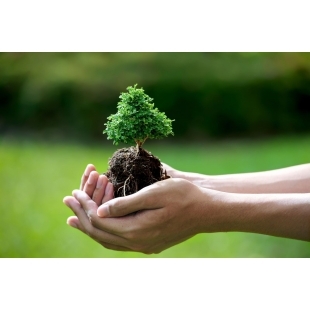
Environmental Protection
In order to implement environmental protection and sustainable development, BSI Group plans to set up a Corporate Social Responsibility (CSR) Committee. The board of directors appoints a chairman to review various CSR policies and decisions, including responses to climate change, major risks, and business opportunities. In order to fulfill its corporate social responsibility, BSI Group proposes an “Environmental Protection Policy”, which response to the national policy of energy conservation and carbon reduction, abides by energy management regulations, continuously improves energy performance, expands procurement of energy-saving products, and regularly reviews energy goals and targets, so as to ensure BSI Group has become a company that conforms to the concepts of environmental protection, energy-saving, and low carbon.
1. The urgency of environmental protection
Climate change will cause extreme weather, including higher temperatures in summer and uneven rainfall, resulting in increased electricity demand during product production, as well as prolonged droughts, affecting water supply. BSI Group's Corporate Social Responsibility (CSR) Committee will develop Projects, improvement issues, participation in observation seminars and mentoring programs, etc., to gradually improve the existing deficiencies. In addition, we realize that pollution prevention is also an important part of energy-saving and carbon reduction. We must vigorously promote waste reduction at the source of wastewater, and waste gas, as well as recycling and emission reduction at the end of the pipe. This can not only ensure the normal operation of production equipment and the quality of the surrounding environment. In addition, it can reduce the waste of resources and energy, reduce operating costs, and achieve multiple benefits.
2. Strategies and goals for the implementation of environmental protection policies
The Corporate Social Responsibility (CSR) Committee of BSI Group plans to set up a group consisting of representatives of the company's first- and second-level management, offices, factories, and laboratories. Downstream partners jointly promote the green industry chain, discuss various reduction technologies, exchange and learn from each other, and continue to promote improvement through activities such as developing project improvement topics, holding observation seminars, and various mentoring programs. In addition, monthly performance review, regular on-site coaching and effectiveness review operations, and detailed review of the reasons why each unit failed to meet the standards, and develop improvement measures to promote.Environmental Protectionmore -
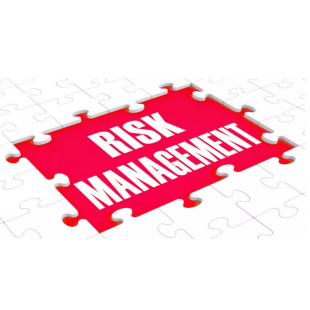
Risk Management
BSI Group follows the environmental safety and health policy, establishes a management system of standardization, review, feedback, and correction, strengthens pollution prevention, implements risk assessment, and control, reduces the impact on the environment and safety and health, and establishes good communication channels to implement continuous improvement and ensure sustainability operate.
1. Occupational safety and health management system
Import the PDCA management system, through the cyclic process of planning (Plan), implementation (Do), check (Check) and improvement (Action), to achieve the goal of safety and health management, and to "standardize and document various occupational, safety and health work" Through the implementation of risk assessment and control, and continuous implementation of improvement measures, the performance of safety and health management can be improved.
2. Environmental protection management system
Adhering to the business philosophy of "quality, technology, environmental protection, and innovation" and deeply understanding that the social environment, climate change, and business operations are closely related, BSI Group actively implements environmental management and is committed to pollution control, environmental protection process product development, and improvement Energy saving and waste reduction efficiency, etc.
3. Chemical Safety Management System
To ensure that the employees of each unit within the BSI Group are aware of the potential hazards of all the hazardous chemicals used, and to ensure that the use of hazardous chemicals in each unit can meet the requirements of the hazard communication rules, to prevent the occurrence of hazards, formulate Hazard Communication Plan Book. All departments are equipped with anti-leakage devices around chemical operation sites, storage tanks, pumps, and other equipment to prevent chemical leakage and pollution hazards; and determine the type of protective equipment, education, and training according to the working environment and chemicals used The subordinate personnel use protective equipment correctly, and use various protective equipment correctly when supervising the operation.Risk Managementmore -

Human Resources
BSI Group knows that every team member is the most important partner of the company, and establishes relevant rules and regulations in accordance with the three major parts of working environment and safety, protection of workers rights and human resources, to ensure the physical and mental health of employees.
1. Working environment and safety
BSI Group has obtained the ISO 9001 certification system, established standard operating procedures, based on the actual working environment of employees and assessing labor exposure conditions, and regularly implements labor operating environment monitoring to understand the actual working environment and ensure the safety and health of employees. Due to the characteristics of the industry, the company has measured the working environment of carbon dioxide, dust, organic solvents, and specific chemical substances, and the test results over the years have been within the allowable range. We will continue to automate equipment and control equipment to improve the working environment and teach employees the correct operation. Methods and protective gear wearing and management methods to protect the health of employees.
2. Protection of work rights and interests
BSI Group clearly declares the protection of human rights, prohibition of discrimination and sexual harassment and other inappropriate or illegal behaviors in regulations such as "Work Rules", "Workplace Sexual Harassment Prevention Measures Complaint and Punishment Measures" and "Complaint Incident Handling Procedures", and in 2018 Signing the United Nations Global Compact swears the Group's determination to promote sustainable development and an inclusive economy and promotes a diverse and effective two-way communication mechanism, which not only protects the rights and interests of employees but also creates a harmonious workplace environment for labor and management.
At the same time, the Group has also guaranteed Welfare such as established clear regulations on salary system, employee insurance, employee benefits, and retirement system, and provides employee labor insurance, health insurance, performance bonus, year-end bonus, domestic and overseas travel insurance, three festival gifts and travel subsidies .
3. Manpower training
In line with the update of products, operating procedures or regulations, the company conducts course training for safety-related personnel every year, so as to avoid problems such as information gaps in the corresponding responsible projects of various units within the company, and at the same time strengthen the personnel training of company members, so that members can communicate with each other. Keep pace with the times and grow together with the company.
In addition, the company implements internship programs with colleges and universities for emerging technologies, product innovation, company culture, etc., and recruits talents through industry-university cooperation, and actively promotes a win-win situation of "mutual assistance and resource sharing".Human Resourcesmore -
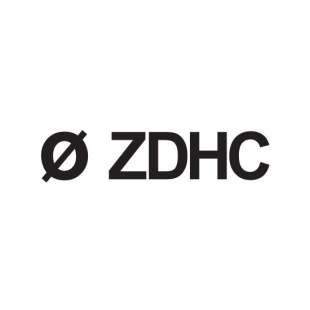
ZDHC
The ZDHC (Zero Discharge of Hazardous Chemicals) program is a group of 27 contracted brands, 81 value chain associations, and 17 associations. The ZDHC Foundation is committed to promoting the zero discharge of hazardous chemicals in the value chain of the textile, footwear industry, and other industries, thereby improving the environment and people's lives. ZDHC is an organization that promotes zero emissions of hazardous chemicals in the textile, leather, and footwear industries. Its plan has identified four key areas and two intersecting areas, and these four key areas are: " Manufacturing Restricted Substances List (MRSL) and Conformance Guidelines, wastewater quality, review protocols, and studies, data and information sharing and training in both cross-cutting areas. The Manufacturing Restricted Substances List (MRSL) is an action policy issued by the ZDHC organization in the Zero Emission Joint Plan Blueprint V2.0, which is intended to restrict the use of hazardous chemicals in the production of chemicals (printing, ink, detergent, auxiliaries...etc) used in the manufacture of textile and leather materials and garments and shoes.
The benefits achieved by ZDHC are as follows:
For formulators: Advancing zero emissions of hazardous chemicals in the textile, leather, and footwear industries.
For suppliers: Commitment to ZDHC industry standards to reduce the use of hazardous chemicals.
For Brands: Support your suppliers in the sourcing of sustainable chemicals.
For partners: Collaboration and information sharing are key.
BSI Group (Jiangsu Dawan) joined the ZDHC Chemical Gateway member in 2017 and became an associated member of the value chain. When manufacturers seek to produce dyes and auxiliaries that meet ZDHC approval, we have a wide range of high-quality products to choose from.
For more information on ZDHC, please visit https://www.roadmaptozero.com/?locale=en_cn.ZDHCmore -
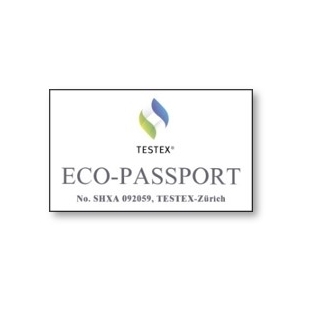
OEKO-TEX® ECO PASSPORT
ECO PASSPORT is a three-stage verification system designed for chemical and compound manufacturers. Leather and textile chemicals verified under ECO PASSPORT have been tested for critical concentrations of hazardous substances listed in the ECO PASSPORT standard. The label provides transparent proof of compliance with the standards for responsible eco-friendly textile and leather products. OEKO-TEX® updates banned substances and limits values annually and incorporate new scientific findings or statutory requirements.
ECO PASSPORT by OEKO-TEX® is a certification system through which manufacturers and suppliers can demonstrate that their products can be used in sustainable textile production. ECO PASSPORT certification has two distinct but complementary processes:
1. Restricted Substance List (RSL)/Manufacturing Restricted Substance List (MRSL) Screening
2. Analytical verification in the laboratories of OEKO-TEX member institutions
Products that meet the requirements of the above two processes can obtain ECO PASSPORT by OEKO-TEX® certification and be listed in the OEKO-TEX® Purchasing Guide, which is OEKO-TEX®’s core purchasing platform for certified products and raw materials.
The benefits of ECO PASSPORT by OEKO-TEX® are as follows:
During the validation process, OEKO-TEX® helps companies choose chemicals that are ecologically sound and environmentally friendly. The testing process has a high CP value, including a comparison with REACH SVHC and OEKO-TEX® RSL and MRSL screening.
ECO PASSPORT can be used as transparent evidence that certified products can be used in sustainable textile production. This expands the potential customer base of brands and retailers.
Prove sustainable production processes for customers. ECO PASSPORT is a third-party independently verified label that helps build customer trust.
Get ECO PASSPORT and benefit from an integrated approach to chemical handling that increases the safety of your production chain.
The third-step verification is recognized by the ZDHC as "Compliant with MRSL Level 3", the highest current level of compliance. Completion of the first and second steps is to meet the ZDHC Level 1 requirements.
Save the cost of laboratory testing in "STANDARD 100 by OEKO-TEX®" and "LEATHER STANDARD by OEKO-TEX®" validation, OEKO-TEX® recognizes ECO PASSPORT as pre-validation.
Validated products can be displayed free of charge in the OEKO-TEX® Buyer's Guide, which covers more than 14,000 users.
The ZDHC website for related chemicals and GoBlu's BHive App can be used to issue verified products, including all relevant certificates.
OEKO-TEX® certified ECO PASSPORT by OEKO-TEX® chemical products are approved for use in STeP by OEKO-TEX® certified factories and STANDARD 100 by OEKO-TEX® certified products.
BSI Group (Jiangsu Dawan) obtained ECO PASSPORT certification in 2013. When manufacturers seek to produce dyes and auxiliaries that meet ECO PASSPORT certification, we have a wide range of high-quality products to choose from.
For more information on ECO PASSPORT by OEKO-TEX®, visit https://www.oeko-tex.com/en/.OEKO-TEX® ECO PASSPORTmore -
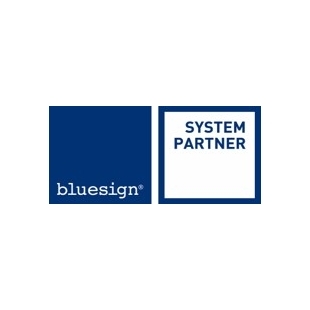
Bluesign
Bluesign was founded in Switzerland in 2000 to provide a comprehensive production control system to limit the impact of textile production on human health and the environment. Now the international inspection company SGS owns 80% of its shares. The Bluesign is based on five principles of sustainability: resource productivity, consumer safety, air emissions, water emissions, and occupational health and safety.
The elements and processes applied are pre-production audited, not a test manufacturer's finished product. This so-called input stream management system ensures that the use of problematic substances is avoided from the outset, making the finished product absolutely safe. The standard defines specific criteria to be applied at each stage in the production chain to ensure compliance with the five principles of sustainable development. These standards are based on the concept of "Best Available Techniques" (BAT). Fundamentally, they require a high level of safety for humans and the environment as well as sustainable production processes.
The Bluesign has three main tools:
bluetool: chemical assessment tool. Chemical products must be confirmed by bluetool to obtain Blue Label certification
bluefinder: Approved System Partner Supplier (Non-Public Domain) Dyestuffs and Chemicals Database
blueguide: directory of bluesign-approved manufacturers of textile products
BSI Group (Jiangsu Dawan) joined the Bluesign in 2010 as a system partner, and now more than 300 textile dyes, pigments, and auxiliaries are listed in bluefinder's database. Therefore, when manufacturers seek to produce Blue Label-approved dyes and auxiliaries, we have a wide range of high-quality products to choose from.
For more information on Bluesign, visit http://www.bluesign.com/.
Bluesignmore -

Social Welfare Program
In order to implement the sustainable development value and goal of "taken from the society and use it for the society", BSI Group not only follows various policy indicators of environmental protection and risk management but also promotes social welfare programs, which cover organizing and donate to public welfare activities of various groups, environmental protection actions and plans to help friends and neighbors.
1. Handle and donate to various group public welfare activities
In addition to providing long-term donations to disadvantaged groups, educational groups, families in poverty, and non-profit organizations, BSI Group also organizes various public welfare activities at home and abroad through social welfare programs, so that the spirit of mutual help and love becomes an important culture passed on among colleagues.
2. Environmental protection actions
In addition to promoting the reduction of pollutant emissions in the production process and the improvement of energy efficiency, BSI Group also promotes actions such as plastic reduction and garbage classification within the company, adopts social welfare plans to adopt some public areas, and organizes beach cleaning and other activities from time to time. Greening (tree planting) activities truly implement the protection of the environment from the lives of every member.
3. The plan of Good Neighbourhood
BSI Group has established a good relationship with the surrounding residents of neighboring factories for many years, communicating with the residents in a friendly manner, and jointly maintaining the public environment of the community so that the colleagues of BSI Group can participate in the construction of the community so that the company and the community can coexist in a sustainable manner and common prosperity.Social Welfare Programmore -
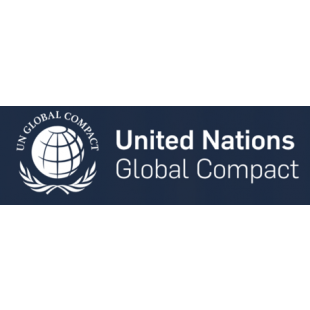
United Nations Global Compact
The United Nations Global Compact is an initiative of companies to commit to operationally and strategically abide by ten globally agreed principles on human rights, labor, the environment, and anti-corruption; the mission of the United Nations Global Compact is to promote sustainable development and an inclusive economy for people, communities and markets for long-term benefits.
The United Nations Global Compact recommends that companies should follow 9 principles in the following 3 parts, including
Human Rights Section
1. Support and respect international human rights within the scope of corporate influence
2. Businesses should ensure that human rights are not violated within the company
Labor part
3. Guarantee the freedom of labor assembly and association, and effectively recognize the right to collective bargaining
4. Eliminate all forms of forced labor
5. Effective abolition of child labor
6. Eliminate discrimination in employment and occupation
Environmental part
7. Support preventive measures against environmental challenges
8. Take the practice of doing more corporate environmental responsibility
9. Encourage research and development and diffusion of environmentally friendly technologies
BSI Group (Jiangsu Dawan) signed the United Nations Global Compact in 2018. Pledged the group's determination to promote sustainable development and an inclusive economy.
For more information on the UN Global Compact, please visit https://www.un.org/en/issues/anti-corruption/compact.shtml.United Nations Global Compactmore


